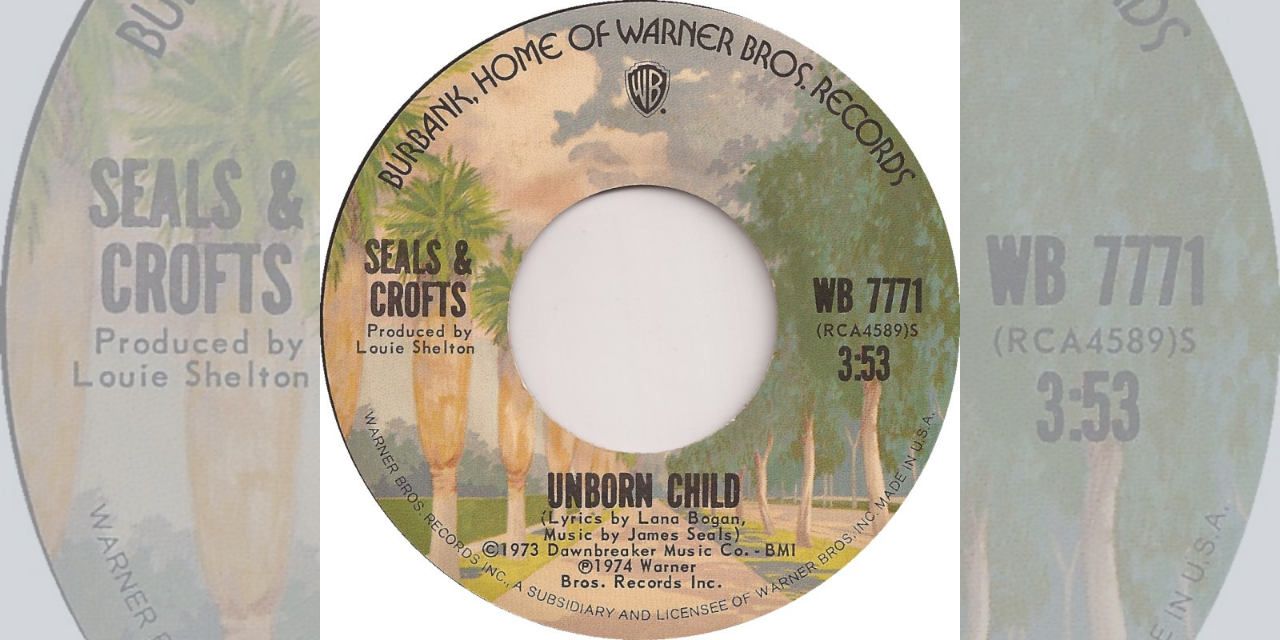Careful readers of the obituaries may have noticed the death this past Monday of Jim Seals, co-leader of the popular 1970s soft-rock band Seals and Crofts. He was 79 and lived in Nashville.
Once upon a time, Seals and Crofts became a household name in music with a string of popular hits – “Summer Breeze,” “Diamond Girl,” and “Get Closer.” But Mr. Seals’ obit took special note of a controversial chapter either long forgotten or deliberately ignored.
Back in 1974, right in the middle of the band’s rapid rise, Jim Seals and his musical partner, Dash Crofts, released a controversial album that its label, Warner Brothers, urged them not to.
Moved and saddened by the Supreme Court’s ruling on Roe a year earlier, Lana Bogan, wife of the band’s recording engineer, Joseph Bogan, wrote a poem. It was titled, “Unborn Child” and here are the lyrics:
Oh little baby, you’ll never cry, nor will you hear a sweet lullabye.
Oh unborn child, if you only knew just what your momma was plannin’ to do.
You’re still a-clingin’ to the tree of life, but soon you’ll be cut off before you get ripe.
Oh unborn child, beginning to grow inside your momma, but you’ll never know.
Oh tiny bud, that grows in the womb, only to be crushed before you can bloom.
Mama stop! Turn around, go back, think it over.
Now stop, turn around, go back, think it over.
Stop, turn around, go back think it over.
The band put the poem to music, releasing it as part of their sixth album.
It seems Warner Brothers’ warnings were prescient. The album’s release met fierce resistance. Their concerts were picketed by pro-abortion activists and many radio stations refused to even play the song. Both men acknowledged the move damaged their career.
“It completely killed it for a while,” Seals later reflected. “It was our ignorance that we didn’t know that kind of thing was seething and boiling as a social issue,” he said. “On one hand we had people sending us thousands of roses, but on the other people were literally throwing rocks at us.”
Did they have regrets?
“If we’d known it was going to cause such disunity,” Seals once shared, “we might have thought twice about doing it. At the time it overshadowed all the other things we were trying to say in our music.”
Seals’ use of the word “disunity” is an interesting choice. If anyone brought division, it was abortion activists and seven members of the United States Supreme Court, whose action and ruling have deeply divided Americans for the last half-century.
It should also be noted that Seals and Crofts subscribed to the Baháʼí Faith – an independent movement with Islamic origins. In the end, though, Dash Crofts considered the album and song to be a net positive.
“I think we got more good results out of it than bad because a lot of people called us and said, ‘We’re naming our children after you, because you helped us decide to save their lives with that song.’ That was very fulfilling to us.”
Most champions of pre-born life have long ago given up any goal or expectation of winning popularity contests. Sadly, protests, boycotts, antagonistic and even violent and threatening behavior – like harassing Supreme Court judges at their private homes – has become regular activity for abortion activists. Not so with those who advocate for the reversal of Roe.
It appears Jim Seals will have missed seeing the fulfilment of his pro-life wish by a mere matter of days or weeks. Yet, the main theme and importance of the song’s message retains its timeless appeal to abortion-minded women everywhere:
Mama stop! Turn around, go back, think it over.






